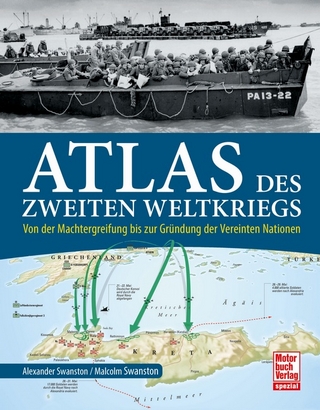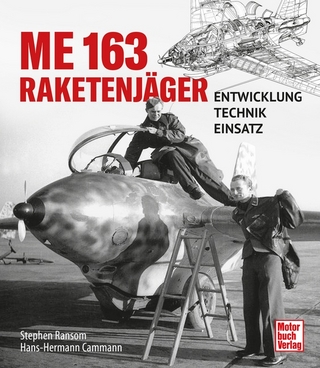
Maximizing the Security and Development Benefits from the Biological and Toxin Weapons Convention
Springer-Verlag New York Inc.
978-1-4020-0912-9 (ISBN)
The Editors would like to thank the authors of the papers at the Advanced Research Workshops for their excellent presentations at the workshops and the production of their drafts. We are indebted to those who helped in the preparation of this volume. We should particularly like to acknowledge the help of Piers Millett, who compiled the papers, set them into camera-ready format and produced the index and Dr. Simon Whitby who made the final changes to the manuscript. Any remaining errors are, of course, our responsibility. Malcolm R. Dando Cyril Klement Marian Negut Graham S. Pearson IX ACHIEVING SECURITY BENEFITS FROM TECHNICAL COOPERATION UNDER THE BIOLOGICAL AND TOXIN WEAPONS CONVENTION GRAHAM S. PEARSON Visiting Professor of International Security, Department of Peace Studies, University of Bradford, Bradford, West Yorkshire BD7 IDP, UK 1. Background l The Biological and Toxin Weapons Convention which opened for signature in 1972 2 and entered into force in 1975 currently has 144 States Parties and 18 Signatory States Article I of the Convention is all-embracing in its complete prohibition of biological weapons stating that: Each State Party to this Convention undertakes never in any circumstances to develop, produce, stockpile or otherwise acquire or retain: (1) Microbial or other biological agents, or toxins whatever their origin or method of production, of types and in quantities that have no justification for prophylactic, protective or other peaceful purposes; (2) Weapons, equipment or means of delivery designed to use such
Achieving Security Benefits from Technical Cooperation under the Biological and Toxin Weapons Convention.- I: Outbreaks Of Disease.- Reporting Outbreaks of Human Diseases.- Reporting Outbreaks of Animal Diseases.- Reporting Outbreaks of Plant Diseases.- Epidemiological Data and Reporting: South American Realities, Problems and Perspectives.- Outbreaks of Disease: Current European Reporting.- Surveillance and Monitoring of Infectious Disease in the Slovak Republic.- Investigation of Outbreaks of Disease Under a Protocol to the Biological Weapons Convention.- Investigations of Suspicious Outbreaks.- Molecular Biological Techniques for Subspecies Identification: An Overview.- Molecular Biological Techniques for Subspecies Identification: Immunological Techniques A Comparison.- An Unusual Outbreak of West Nile Fever in Romania.- WHO Contribution to Global Surveillance of Microbial Threats.- II: International Cooperation in Microbiology and Biotechnology.- Maximizing the Security Benefits from International Cooperation in Microbiology and Biotechnology.- Maximizing Security Benefits from Technical Cooperation in Microbiology and Biotechnology: Infrastructure, Regulations And Procedures.- Benefits from International Cooperation in Microbiology: An Overview.- Benefits from Cooperation in Biotechnology: The Experience of the International Centre for Genetic Engineering and Biotechnology.- Benefits from International Cooperation in Biosafety in Central and Eastern Europe.- Measures to Provide Biosafety at the Research Center of Virology and Biotechnology “Vector”..- Slovakia: Biotechnology Transfer under BTWC Protocol and the Convention on Biological Diversity.- The US Select Agent and Laboratory Registration Program.- The Development of Biotechnology in Poland.- CzechRepublic. The Development of Microbiology and Biotechnology in the Czech Republic During the Past 20 Years and Prospects for the Future.- Prospects of the SRC VB Vector International Collaboration in the Field of Emerging Infections and Biotechnology.- Good Manufacturing Practice and Licensed Products.- Approaches to the Introduction of the Quality System into the SRC VB “Vector”.- Industrial Aspects of Technical Co-Operation in Microbiology and Biotechnology.- Databases, Networks and Clearing Houses.- Increasing Transparency and Building Confidence: The OPCW Experience.- Building Peaceful Co-Operation into the BTWC Verification Protocol.- III: Concluding Remarks.- Maximizing the Security Benefits from Technical Cooperation Under the Biological and Toxin Weapons Convention.
| Erscheint lt. Verlag | 31.10.2002 |
|---|---|
| Reihe/Serie | NATO Science Partnership Sub-Series: 1 ; 36 |
| Zusatzinfo | IX, 416 p. |
| Verlagsort | New York, NY |
| Sprache | englisch |
| Maße | 170 x 244 mm |
| Themenwelt | Natur / Technik ► Fahrzeuge / Flugzeuge / Schiffe ► Militärfahrzeuge / -flugzeuge / -schiffe |
| Naturwissenschaften ► Biologie | |
| Sozialwissenschaften ► Politik / Verwaltung | |
| ISBN-10 | 1-4020-0912-7 / 1402009127 |
| ISBN-13 | 978-1-4020-0912-9 / 9781402009129 |
| Zustand | Neuware |
| Haben Sie eine Frage zum Produkt? |
aus dem Bereich


